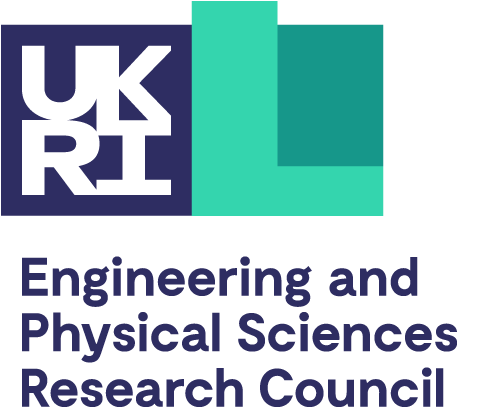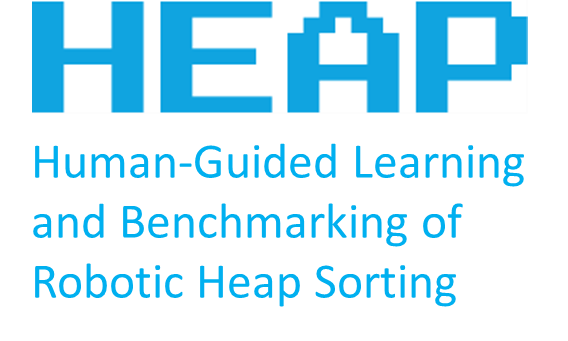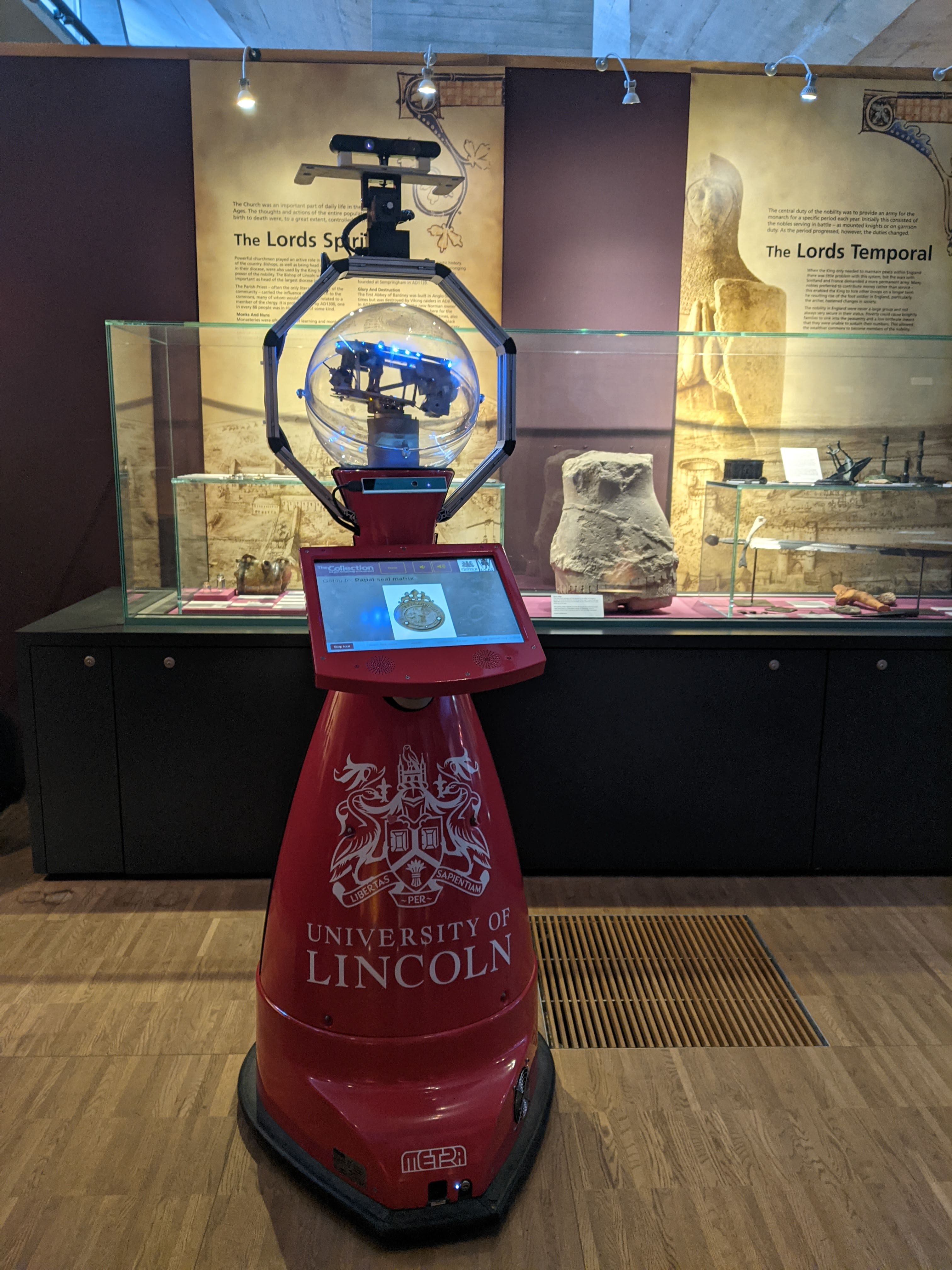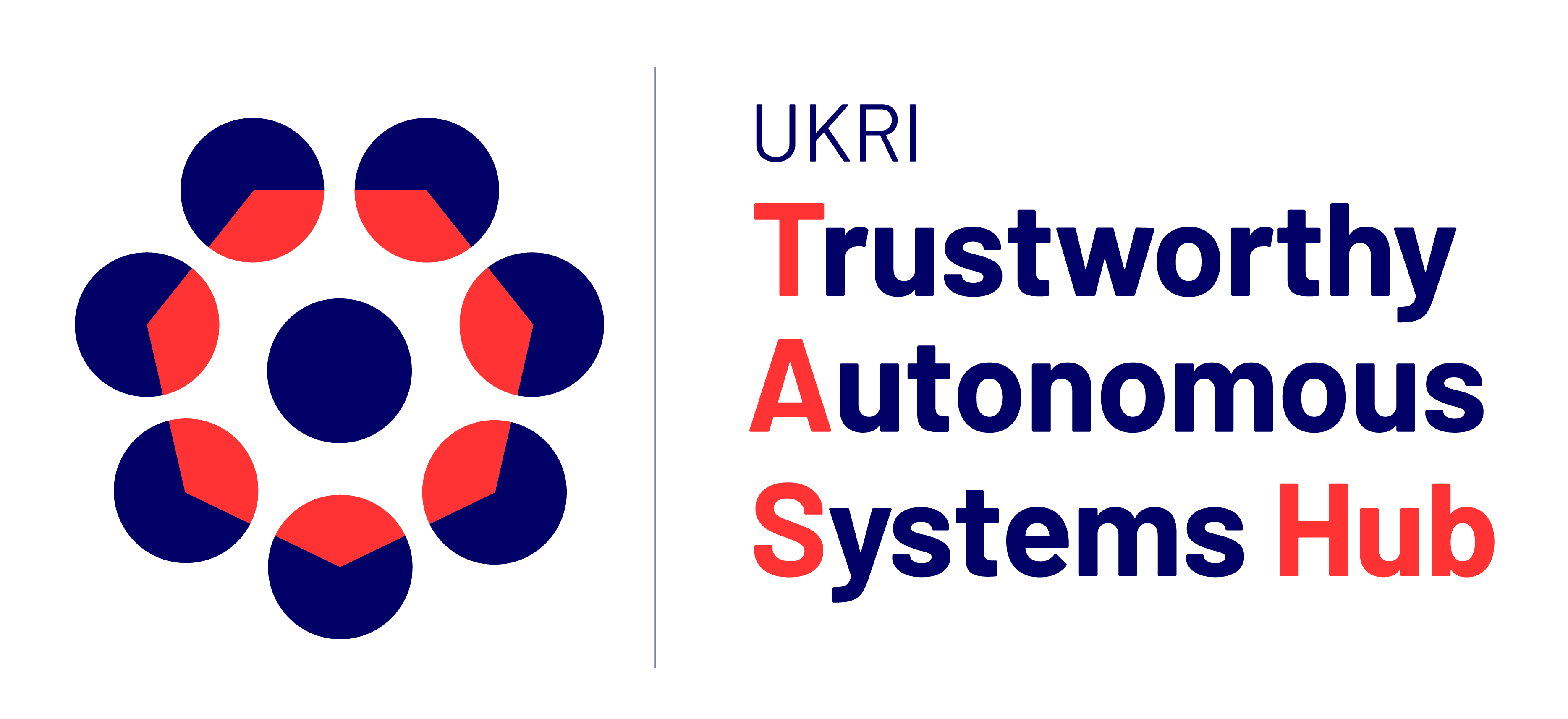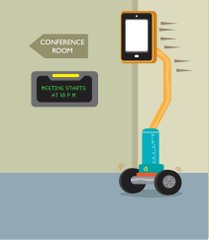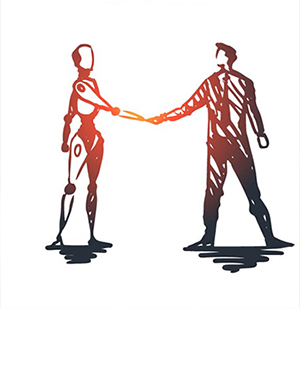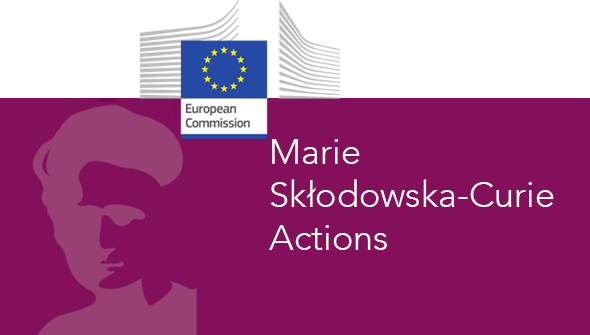Funded research projects
Next Generation Rehabilitation Technologies
UKRI Healthcare Technologies New Challenges Network Plus (EP/W000679/1), 2021-2024
This multidisciplinary network brings together a range of stakeholders, including academic researchers, technicians, healthcare practitioners, patient representatives, and industry. It consists of a core membership of clinical and technical experts from the rehabilitation field, alongside patient representatives sharing their lived experience of conditions and rehabilitation. The Network also seeks to introduce researchers who are not typically involved in rehabilitation research, but who have potentially transformative technologies and materials, into the rehabilitation technology community.
Investigators: Ruth Goodridge (PI), Ayse Kucukyilmaz, Pip Logan (University of Nottingham); Prof Mark Lewis (Loughborough University) |
Human Guided Learning and Benchmarking of Robotic Heap SortingCHIST-ERA (EP/S033718/2), 2019-2023
HEAP project is a European consortium that investigates robotic sorting of unstructured heaps of unknown objects. We investigate novel robot manipulation and machine learning algorithms that can learn from human guidance and shared control. Robotic heap sorting is of interest for many applications, such as nuclear decommissioning, recycling and manufacturing. The consortium aims at building an end-to-end benchmarking framework, which includes rigorous scientific methodology and experimental tools for application in realistic scenarios. Benchmark scenarios will be developed with off-the-shelf manipulators and grippers, allowing to create an affordable setup that can be easily reproduced both physically and in simulation.
The consortium consists of the University of Nottingham (Ayse Kucukyilmaz, coordinator), TU Wien (Markus Vinze), IDIAP in Switzerland (Jean-Marc Odobez), INRIA Nancy (Serena Ivaldi) and IIT in Italy (Lorenzo Natale). |
TARICS: Trustworthy Accessible Robots for Inclusive Cultural experiencesUKRI Trustworthy Autonomous Systems Hub Pump Priming Programme, 2022-2023
Cultural experiences, such as going to a museum are an important activity in society and an important source of personal enrichment that can affect a person’s wellbeing. However, guided visits are not always accessible for everybody, often leading to vulnerable members of society feeling excluded.
TARICS aims to create an interactive cultural experience for museum visits by provisioning a social robot to make the experience more accessible and inclusive for people with learning disabilities and/or autism. The proposed learning and interaction techniques will be deployed on Lindsey, a robot tour guide operating autonomously in The Collection Museum since 2018. Project team: Marise Galvez Trigo, Marc Hanheide, Niko Kargas, Paul Baxter (University of Lincoln); Ayse Kucukyilmaz (University of Nottingham) |
Open all Senses – Accessible Multimodal Telepresence Robots in Social SpacesUKRI Trustworthy Autonomous Systems Hub Agile Programme, 2022-2023
Telepresence robots are mobile robots that enable people to access and navigate within remote spaces. These robots are increasingly being introduced into our everyday social and work lives and this brings forth challenges around acceptance, safety and trustworthiness. Open All Senses will explore people’s feelings of safety and comfort when controlling and interacting with telepresence robots and will provide opportunities for transforming their design and utility.
In order to understand the use of telepresence robots in different contexts, the project will create mock-ups of a nursing home and a museum – to simulate real world environments. Robots will be adapted with physical affordances and interaction modalities to prototype a concept for physically enabled telepresence. Studying and evaluating these technologies in stimulated settings will extend research into real-world environments, providing insight into users’ perceptions of trust towards, including access, functionality, safety, privacy, reliability and quality of interactions. Project team: Horia Maior (PI), Ayse Kucukyilmaz, Pepita Brand, Richard Hyde, Anna-Maria Piskopani, Praminda Caleb-Solly, Dominic Pric, Armaghan Moemeni, Emily Burdett, Joel Fischer |
TAS-ART:Augmented Robotic Telepresence Integrator
UKRI Trustworthy Autonomous Systems Hub Integrator Programme, 2022-2023
This project explores the potential of Augmented Robotic Telepresence (ART) to improve on trustworthiness, inclusion/accessibility and independence afforded to remote users of Mobile Robotic Telepresence (MRP). Currently, while MRP have autonomous systems features such as collision avoidance, they do not typically allow for physical manipulation of the environment, have been found to engender limited trustworthiness, and have yet to achieve widespread adoption. We will co-design and study ART, which draws on Augmented Reality (AR), Internet of Things (IoT), and robotic actuation with stakeholders in societally significant domains (workplaces, museums, commerce, education and healthcare) following a socio-technical multidisciplinary approach to understand whether and how ART engenders trustworthiness for remote and local participants.
Project team: Ayse Kucukyilmaz (PI, University of Nottingham), Horia Maior (PI, University of Nottingham), Marise Galvez Trigo (PI, University of Lincoln), Sylvaine Tuncer (PI, King's College London), Joel Fischer (University of Nottingham), Francesco del Duchetto (University of Lincoln), Dominic Price (University of Nottingham), Andriana Bodouraki (University of Nottingham), Stuart Reeves (University of Nottingham), Praminda Caleb-Solly (University of Nottingham), Paul Luff (King's College London), Patrick Dickinson (University of Lincoln), Gary Burnett (University of Nottingham) |
Trustworthy Human-Robot Teams
UKRI Trustworthy Autonomous Systems Hub Agile Programme, 2021-2022
|
The COVID19 pandemic has presented novel challenges for routine tasks such as surgery and cleaning. Social distancing makes working in close proximity difficult, exacerbated by additional pressures due to employee sickness and austerity measures.
These challenges present increased opportunities for human-robot collaborative teams but questions remain relating to trust towards the robot within the team and more broadly, the trust of affected groups (e.g., patients) towards tasks carried out by robot-assisted teams.
This interdisciplinary TAS Hub agile project explored different aspects related to trust within and towards human-robot teams in two essential tasks: surgery and cleaning.
Investigators: Nicholas Watson (PI), Joel Fischer, Ayse Kucukyilmaz, Richard Hyde (University of Nottingham); Paul Luff (King's College London); Christine Evers, Pauline Leonard (University of Southampton)
Partners: Intuitive Surgical, AgriFoRwArdS CDT
These challenges present increased opportunities for human-robot collaborative teams but questions remain relating to trust towards the robot within the team and more broadly, the trust of affected groups (e.g., patients) towards tasks carried out by robot-assisted teams.
This interdisciplinary TAS Hub agile project explored different aspects related to trust within and towards human-robot teams in two essential tasks: surgery and cleaning.
Investigators: Nicholas Watson (PI), Joel Fischer, Ayse Kucukyilmaz, Richard Hyde (University of Nottingham); Paul Luff (King's College London); Christine Evers, Pauline Leonard (University of Southampton)
Partners: Intuitive Surgical, AgriFoRwArdS CDT
Robots Mediating Interaction: Understanding Interaction and Perception in Collaborative Work via CobotsUKRI Horizon Digital Economy Research Agile Projects Programme Round 1, 2021-2022
|
Collaborative robots—cobots—present conceptually novel challenges to those of industrial robots in that they are imagined as situated amidst individuals and social groups as opposed to operating within ‘separated’ environments. Collaboration is often formulated in terms of improving dyadic human-cobot interaction. But a much broader issue is the way cobots are embedded into social circumstances, interacting with and around multiple people or groups. This project investigates cobots as mediators by setting up a series of scenarios in which physically distributed groups engage in collaborative tasks where cobots provide support in mediating between them.
Project team: Stuart Reeves (PI), Ayse Kucukyilmaz, Sarah Martindale, Dominic Price, Marise Galvez Trigo, Pepita Barnard, Shazmin Majid
Partners; Unilever, BlueSkeye AI
Project team: Stuart Reeves (PI), Ayse Kucukyilmaz, Sarah Martindale, Dominic Price, Marise Galvez Trigo, Pepita Barnard, Shazmin Majid
Partners; Unilever, BlueSkeye AI
This research investigates human behavior characteristics during an everyday physical dyadic task. A human-centric experimental approach will be adopted to discover the salient features of haptic human-human interaction, with the aim of building an online recognition framework for dyadic interaction behavior classification.

